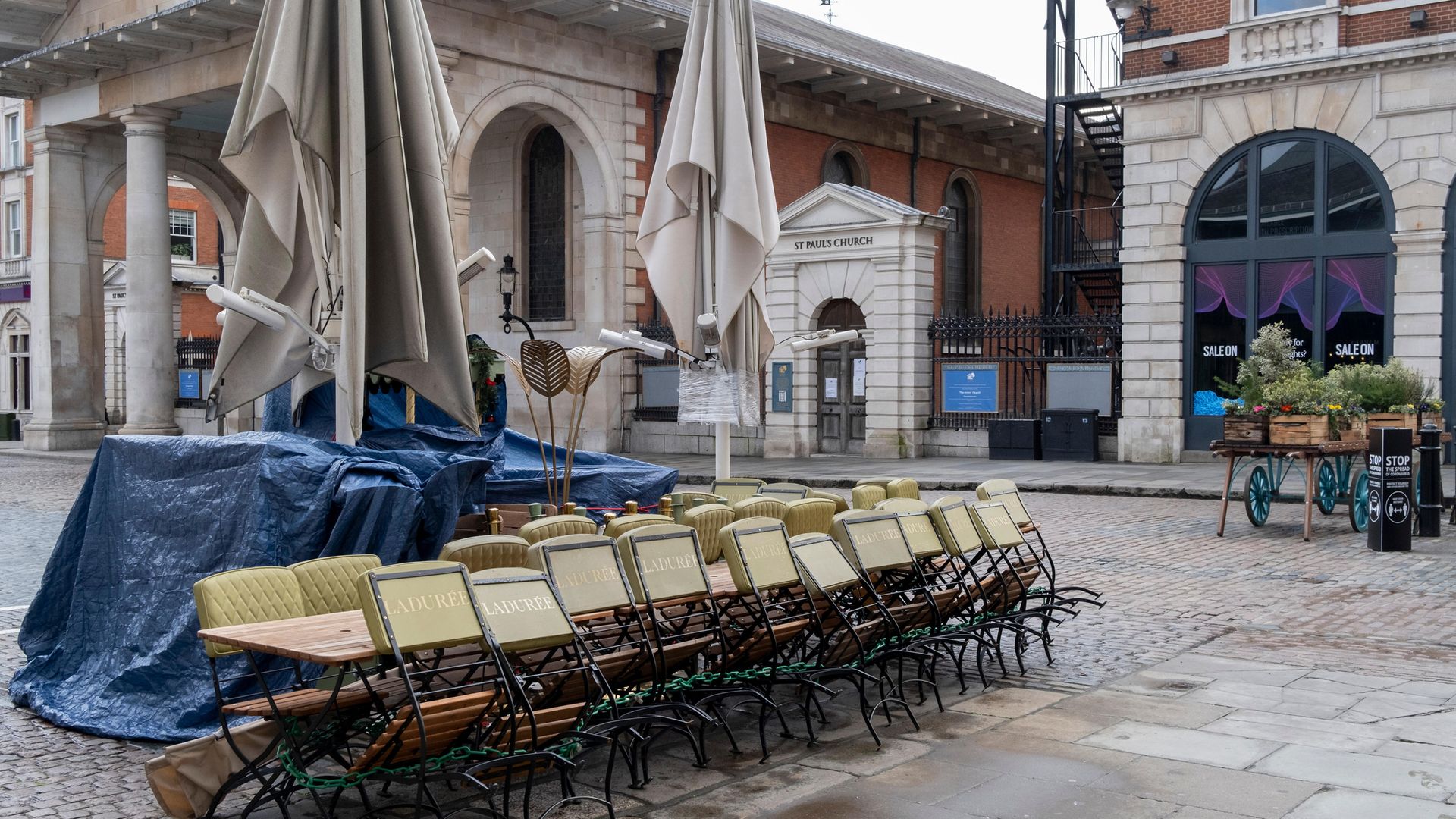
WILL SELF advances a satirical suggestion to solve some of the country’s problems.
In the 1990s – as I’ve often had cause to relate – a profound change occurred in British culture. Up until that point British cuisine was pretty dreadful: over-cooked, urine-smelling veg; overcooked, leathery meat, together with piss-poor trimmings – that was our signature dish. But a change came with Blairism: an ideology formed by – as much as in – the trendy restaurants that were beginning to be opened the length and breadth of the land.
Blair, a conspicuously uncultured man himself – at least in the traditional sense – played the part of maitre d’, ushering in a new kind of bourgeois culture, one in which instead of reading Boccaccio, you merely had to eat focaccia; and instead of listening to Berlioz you’d only to uncork a bottle of Château Haut-Brion – or indeed any other premier cru Bordeaux.
Britain’s membership with the EU may have delivered us many cultural benefits during the past 30 years, but I’m afraid most conspicuous among them has been a mass obsession amongst its middle classes with what we put in our mouths; and as any good psychoanalyst could tell these hommes moyen sensuel – if they had us all on the couch – obsessive orality is only a cheese-paring’s distance away from… obsessive anality; while both characteristics are evidence of chronic immaturity.
Anyway, all this playing with our food has undergone profound change with the pandemic. No longer able to go to restaurants, cafes, gastro pubs and bars, we British have been driven back into our own kitchens and living rooms. Alternating between them – and our computers – we’ve spent our time of reclusion upping our culinary skills, and sharing the results on social media. We’ve gone from a nation that salivates over steaks to one that salivates over pictures of them – and how Pavlovian is that? The meanings cultures invest life-processes with may be, in a sense, hidden from them by the accretion of practices that inter-fuse the real and the symbolic, but a culture that has no other dietary taboo other than… not caring about one’s diet, is scarcely worthy of the name.
Jonathan Swift made the modest, satiric and yet highly inflammatory proposal that the recurrent famines in the rural Ireland of his era might be ameliorated by a simple expedient: encouraging the landless Irish peasantry to farm their own babies and then consume them by way of an efficacious dietary supplement. Cannibalism, of course, exerts an intense fascination on the human animal – this, surely, is the ultimate expression of orality conceived of as a form of schizoid incorporation: by eating you, I become you. The taboo against its social practice is surely in direct proportion – let’s face it, to its individual appeal. And if one knows someone who has eaten human flesh – even by means of some entirely consensual act, a Last Supper arranged á deux – it’s impossible not to regard them with awe, tempered by a sort of fearful disgust.
Even writing about cannibalism can powerfully affect your life. I’ve known the eminent novelist, Piers Paul Read, for decades now – but even when I first met him, the defining moment of his career was already past: namely, Alive his 1974 account of the crash of a Uruguayan air force plane in the Andes, in the aftermath of which the survivors were compelled to chow-down on each other. In the cloistered and envious world of literary London, Read, as the author of a compelling and bestselling work of narrative non-fiction, was henceforth looked at with… Well, a mixture of awe tempered by a sort of fearful disgust.
Still, never one to be swayed by social opprobrium, while recognising that in these perilous times radical solutions are the only ones that will command general and enthusiastic support, I feel compelled to advance a modest proposal of my own: namely, that the way to deal with both mass unemployment in, and foreclosure of that part of our economy we must, perforce, call ‘the hospitality sector’, would be to feed the currently furloughed or redundant restaurateurs, sommeliers, waiters and kitchen staff to the poor. Obviously, in order to counter the understandable revulsion associated with the plan – which will involve murder and dismemberment on an industrial scale – the government should begin by cooking only the premier league of cooks – the Jamie Olivers and Nigella Lawsons of this mad old world.
As the programme got going, the anger and disgust necessarily felt by the more squeamish and ethically-minded amongst us at the wholesale slaughter and consumption of largely young people – a significant proportion of whom will be doubly-unemployed actors – will, I feel certain, be entirely offset once it’s realised that the demand on food banks has been significantly reduced, and the free meals for vulnerable school-age children programme significantly expanded. I suspect I myself will benefit from the same sort of bounce in popularity as the prime minister has from the vaccine rollout: no longer will people view me as the cadaverous and cynical writer who stares down politicians on live television, but rather as a sort of saviour. My name will be spoken in the same contexts as those of Marcus Rashford and Captain Sir Tom – and can a trip to the palace to instruct the Queen in the preparation of Barista-au feu be far behind?
What do you think? Have your say on this and more by emailing letters@theneweuropean.co.uk










